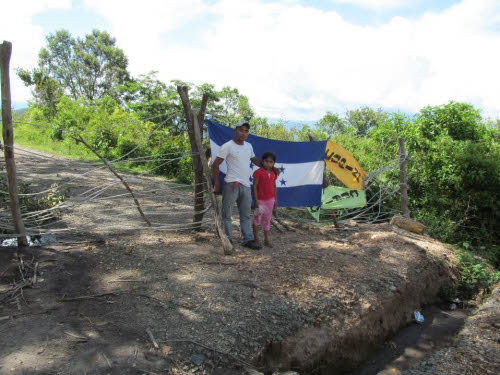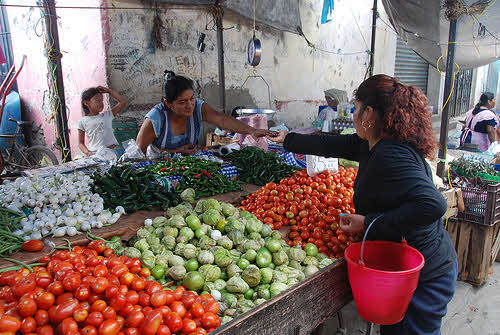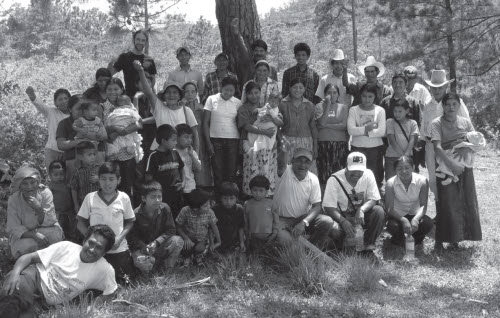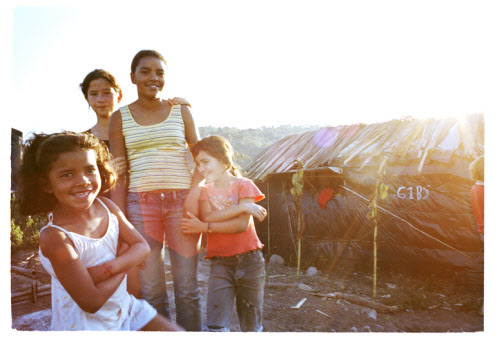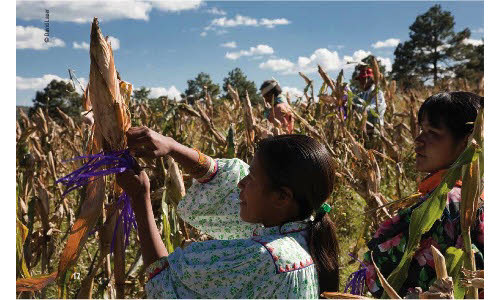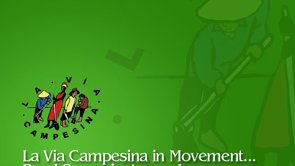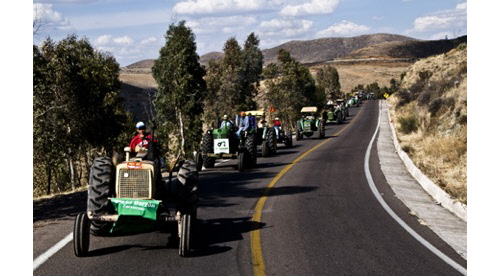On September 12, Berta Caceres, Tomás Gomez, and Aureliano Molina, leaders of the indigenous Lenca organization Council of Popular and Indigenous Organizations of Honduras (COPINH) must appear in court. Their charges? Usurpation of land, coercion, and causing more than $3 million in damages to DESA, a hydroelectric dam company. Berta, the general coordinator of COPINH and an internationally recognized social movement leader, is also facing separate charges of illegally carrying arms “to the danger of the internal security of Honduras.”
Tag: social movements
Harvesting Justice 27: The Ancestral Values We Inherited – Protecting Indigenous Water, Land, & Culture in Mexico
“Within our indigenous community of Xoxocotla, we continue to hold the ancestral values we inherited. It never crosses our mind to leave them behind. Because in daily life we are always in contact with nature, with our lands, with our water, with our air. We live in harmony with nature because we don’t like the way that modernity is advancing, destroying our territory and our environment. We believe technological modernity is better named a death threat.”- Saúl Atanasio Roque Morales
Harvesting Justice 26: “They Fear Us Because We’re Fearless” – Reclaiming Indigenous Lands & Strength in Honduras
Multinational corporations are moving into Central America to exploit gold and other minerals, rivers, forests, and agricultural lands. One area of high interest in the corporate feeding frenzy is the indigenous Lenca region in the southwest of Honduras. The government has given outside businesses concessions to dam, drill, and cut, in violation of national law and international treaties. More corporations have simply moved in on their own.
Harvesting Justice 24: We Don’t Have Life without Land – Holding Ground in Honduras
Consuelo Castillo, a community organizer in Lempira, a land reform settlement in Bajo Aguán, Honduras, said, “Our goal is for everyone who is part of the land occupations to have access to land. Land is our first mother. For us farmers, we don’t have life without land.”
Harvesting Justice 23: Inherit the Earth – Land Reform in Brazil
In recent years, the voice and visibility of movements opposing land grabs and displacement, and demanding land reform, are increasing. Though relatively little land has been redistributed, organized movements of small farmers, indigenous peoples, and landless people are developing in size, strength, and organization. They are uniting across borders to break the nexus between land, agriculture, power, and profit.
Harvesting Justice #4: Women’s Work – Gender and the Global Food System
Women produce 60 to 80 percent of all food, both as subsistence farmers and as agricultural wage laborers. They are the primary providers for the majority of the world’s 925 million hungry people, obtaining food, collecting firewood and water, and cooking. And yet they have less access to land and the resources necessary to grow on it than their male counterparts. Inequitable distribution of land, labor, and resources leaves farming women triply burdened by work: in the fields, in the home, and in society.
Harvesting Justice #2: Think Globally, Eat Locally
Food sovereignty is rooted in the daily work of every small farmer, rancher, fisherperson, landless farm worker, and everyone else involved in local food production. Yet no matter what they produce, their ability to survive is affected by international market forces. The movement, therefore, also includes community, national, and international activists working for just trade and economic systems.
Harvesting Justice: Transforming the Global Food Supply Chain – Food Sovereignty
From community gardens to just global policy, a national and global movement is growing to reclaim food, land, and agricultural systems from agribusiness and put them back in the hands of citizens.
A Meditation on Being American… and My Role in Global Sustainability
This blog post was written in response to some unusually caustic replies received on my last Sustainablog post, “The Dissonance Between Dreams: Re-writing the Sust Enable Episode Scripts.” It was [ … ]

